Residency
General Information
Thank you for another great year. We have officially wrapped up all interviews for the incoming 2026-27 PGY-1 class. We enjoyed meeting all those who were interviewed and wish we could have interviewed many more. Nevertheless, we now await the results of the match on Friday, March 20 and look forward to welcoming another stellar group of residents to join our program.
Good luck to all those out there still seeking interviews and positions.
*********************************************
The University of Louisville School of Medicine has been training residents in psychiatry for 75 years, reducing mental health stigmas, increasing access to mental health care, and adjusting to fit the ever-evolving mental health needs of the community. Click HERE for more information.
Preserving Telesupervision: A Call for Legislative Advocacy
For information about advocating for the continuation of virtual supervision in telehealth training, please contact your representatives and senators via congress.gov, using APA resources at psychiatry.org/advocacy—requesting permanent virtual supervision and citing its impact on training and access before the December 31, 2025, deadline.
This effort is essential to sustaining psychiatric training and equitable care, and should not be limited to residents only, as everyone in the field has an interest in maintaining the highest possible quality of educational supervision and patient care access.
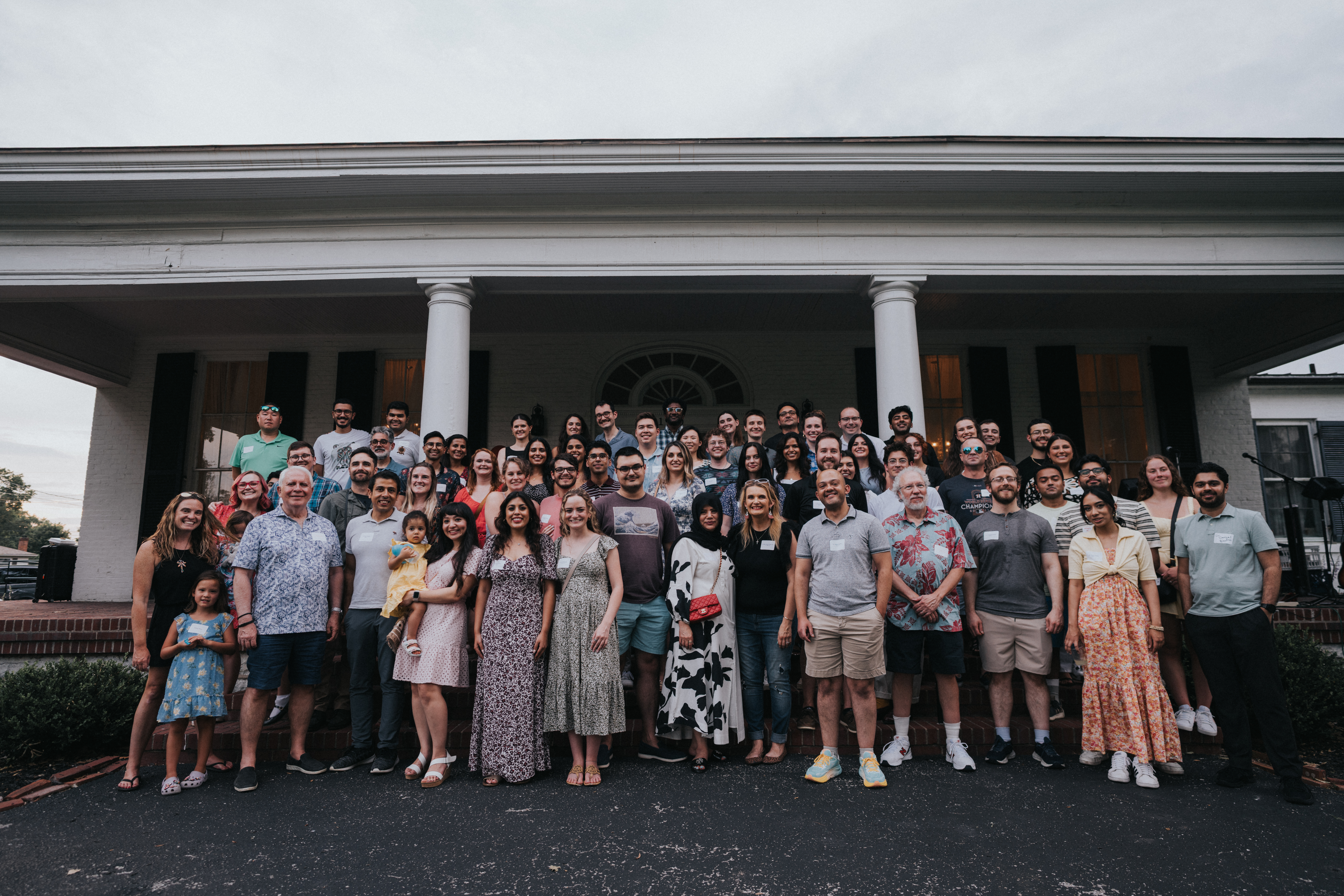
To contact the Residency Office, please call (502) 588-4865, or email psychres@louisville.edu.
Ready for some fun? Follow us on Instagram and join our awesome crew for all the latest buzz!
UofL Psychiatry Residency (@uoflpsychiatry) on Instagram
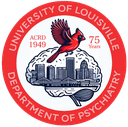
In the Spotlight
Chief Resident, Orlando Maldonado, MD, attended the Tarrytown Psychiatry Chief Resident Leadership Conference, the premier leadership training experience for 51 years. This year's gathering was in the IBM Louis V. Gerstner, Jr Center for Learning in Armonk, NY, the weekend of May 30, 2025.
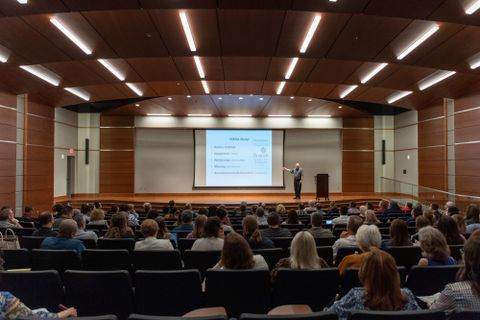
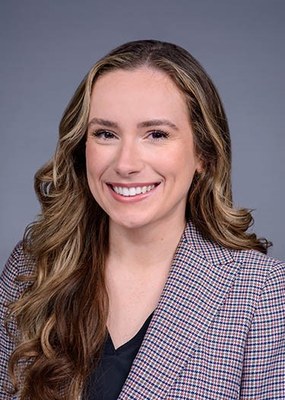
Chief Resident, Jacqueline Young, M.D., was unable to attend the meeting in NY and opted for the Chief Leadership Development Academy Conference in May 2025.
Movie Night
"Freud's Last Session"
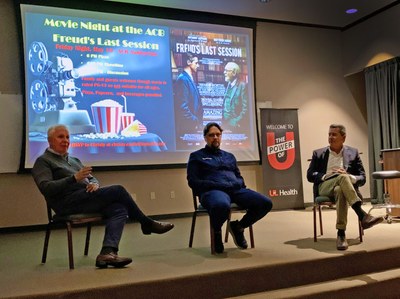
"Freud's Last Session" was viewed by residents and faculty in May. The discussion led by David Casey, M.D. (Chair of Psychiatry), Erik Goodwyn, M.D. (Clinical Faculty, Psychiatry) and Martin Cothran (Director of the Classical Latin School Association).
Former resident, Willie Mae Jackson, is a novelist!

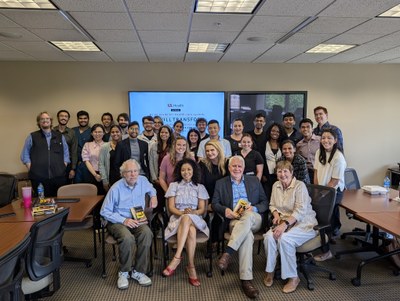
Dr. Jackson has a new book out titled "Dark Protection (A Donovan Montgomery Thriller)" Look for it on Amazon or a bookstore near you!
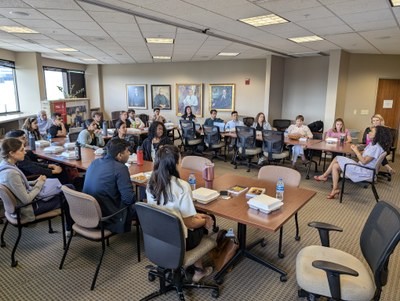
Hybrid Model: New Normal or Unstable Transition Phase?
Robert Caudill, M.D., Residency Director
Overview
The University of Louisville General Psychiatry Residency is a balanced program offering a broad array of closely supervised clinical experiences. We are poised for growth as we expand our resident complement from 36 to 48 positions over the next few years. It will be a time of change and growth for both the program and the residents in it. Faculty provide our residents with the knowledge and skills to become outstanding psychiatrists. The program strives to provide residents with the information needed to achieve clinical excellence. Our residency provides an extensive foundation for both pharmacologic and psychotherapeutic interventions. Our General Residency Program provides a comprehensive psychiatric education. Whether through formal didactics, journal clubs, clinical rounds, or informal discussions, our commitment to learning is clear. Clinical supervision is at the core of our program and additional guidance is available as needed. Opportunities for program growth can be found in our expanding work with Peace Hospital. Research taking place in the department allows residents to learn from those adding knowledge to the field. Several of our faculty and residents serve at the regional and national level in professional organizations. We value the benefits of professional networking. We encourage residents to attend national conferences, work with faculty on research projects and scholarly endeavors, and participate in professional organization sponsored fellowship programs. Our residents work with and are supervised by faculty providing care in the academic clinical system, the private sector, the Veteran’s Administration system, the local community mental health system, and a state hospital. Because of this diversity of training sites, we are successful in helping trainees gain the skills and expertise needed to work in a wide variety of settings after residency. Our commitment to education paired with Southern hospitality and Midwestern practicality makes the University of Louisville an exceptional place to train and call home.Mission Statement
The University of Louisville Department of Psychiatry and Behavioral Sciences seeks to recruit outstanding students with a high sense of professionalism, compassion, work ethic, intellectual curiosity, creativity and self-reflectiveness. Residency education is among the department’s highest concerns. Our goal is for residents to graduate with the knowledge, clinical-skills, and experience to become successful clinicians and advance the field of psychiatry.Contact Information
To contact the Residency Office, please call (502) 588-4865, or email psychres@louisville.edu.
Meet the Training Office
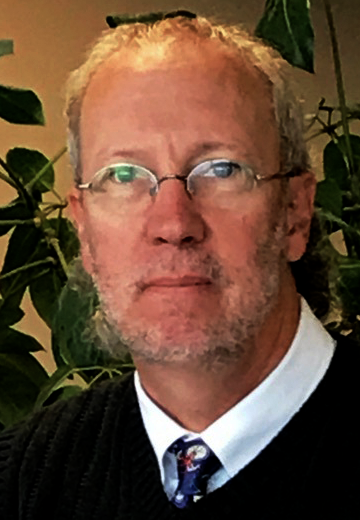
Robert Caudill, M.D.
Training Director
Christy Castle-Greenwell, C-TAGME
Residency Program Coordinator
Email: psychres@louisville.edu
Phone: (502) 588-4865
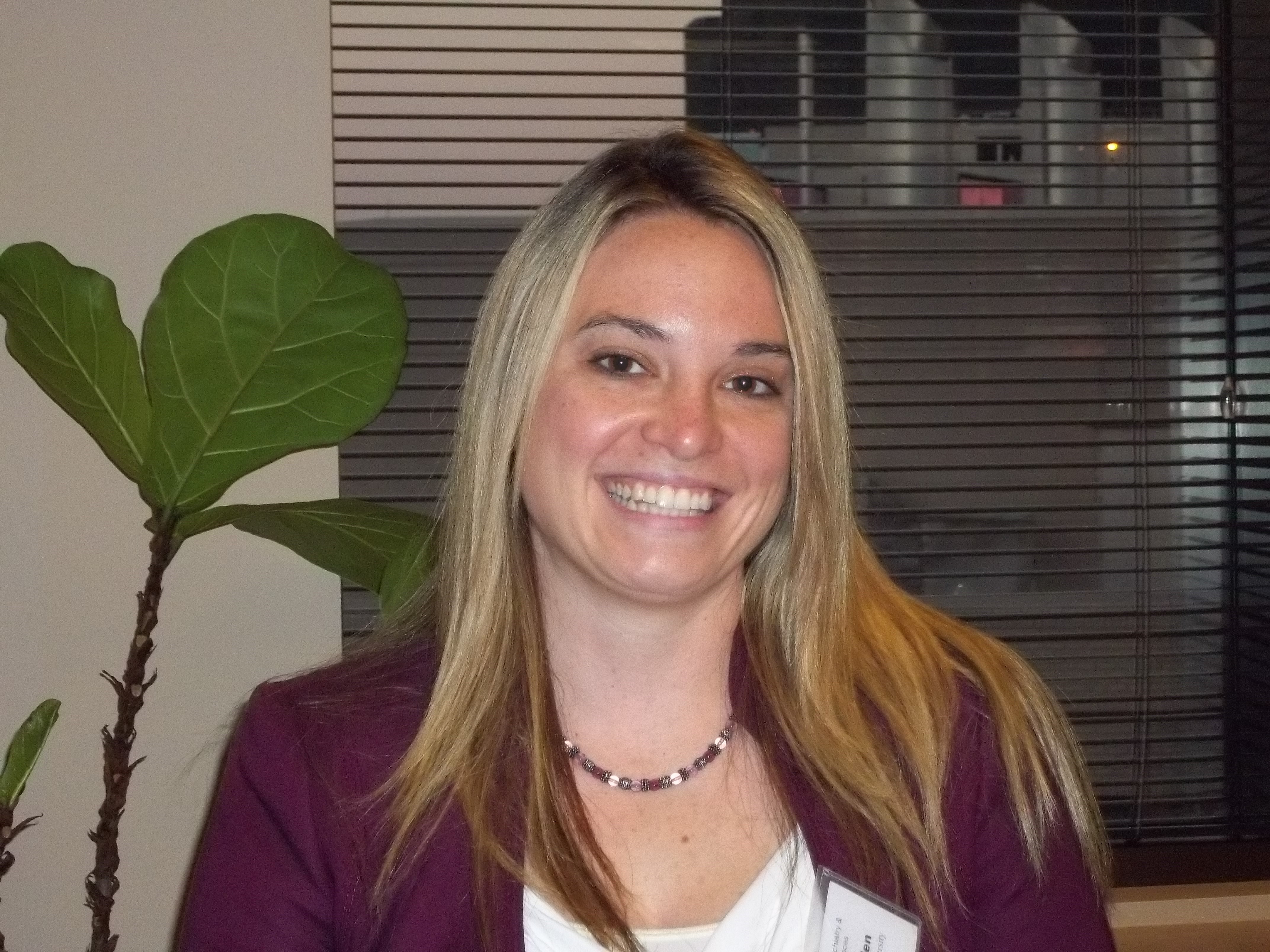
Courtney Eaves, D.O.
Associate Training Director
Message from the Director
Welcome to the website of the University of Louisville Department of Psychiatry and Behavioral Sciences residency program. We hope you enjoy your virtual visit with us and find out if we are what YOU are looking for. The material on the website should help you understand what WE are looking for. We value intellectual curiosity and strength of character in our residents. We seek residents with a strong interest in human behavior as it relates to psychiatry. We consider these attributes to be the building blocks for the development of future psychiatrists.
Successful residents will have both the aptitude and the attitude to succeed in this specialty. The ability to understand and retain the ever-growing body of knowledge generated in psychiatry is an obvious requirement. The attitude one brings to this study will greatly determine the quality of the experience. In acquiring a medical education, students have inevitably taken many “prerequisite” courses prior to selecting a specialty. Enthusiasm for seemingly unrelated and mandatory topics can vary. However, by the time one has arrived at their chosen field of study, the excitement and passion for the specialty should be palpable. Residency is not a time for complacency. It is the opportunity to become fully immersed in one’s area of greatest professional interest. It is reasonable (desirable even) to be enthusiastic about the opportunity to learn and grow in one’s appreciation of psychiatry. Our task is to create and maintain a residency environment that supports and nourishes this passion.
Our program provides the medical field with physicians who can also extend the knowledge and understanding of the specialty of psychiatry. We recognize that personal and professional growth is a key aspect of psychiatric education. Our program seeks to balance the educational opportunities and approaches available to residents. We are fortunate to have access to a wide variety of clinical settings with diverse patient populations. We have formal didactic sessions, journal clubs, grand rounds, case conferences, M&M’s, and an experienced supervising faculty. Long before we all became telepsychiatrists, we all became telepsychiatrists, we were successful in recruiting residents who wished to be among the “early adopters” and embrace new technologies and techniques while holding firmly to what is known to be timelessly true. The latest fads and fashions in the field can be acknowledged while still retaining the hard won and time-tested concepts that are effective and unchanging. However, real science is never “settled.” To the degree allowed, we still encourage questions and discussion here. Students who arrive having been taught only what to think hopefully finish knowing how to think. We help residents develop to the limits of their abilities. Residents have different career interests and pursuits. We help our trainees recognize their potential in their areas of interest and achieve their goals.
Residents are active members of our department. They serve on committees within the University as well. In these roles they directly address the multiple issues facing the changing field of medical education. Our residents have their own governing body, the Psychiatry Residents Association. This group meets regularly and serves as an avenue for communication and advocacy within the program. It is also where residents are involved in the selection of on-call assignments. Residents are actively involved in the recruitment and selection of their new colleagues. They play roles in the development and review of curricula. Resident driven projects are common. From quality improvement activities to telepsychiatry clinics, we have historically embraced changes and new ideas.
The local environment is inevitably a major factor in any major life decision. Residency is no different. Louisville has been a city that has allowed many to flourish beyond the academic environment. It has offered natural beauty - our park system was designed by Frederick Law Olmsted, the designer of Central Park in NYC and the Biltmore House grounds. Prior to the covid response, there were top quality cultural events (one of the nation's top regional theaters, a ballet and Broadway shows), college sporting events (and a minor league baseball team with a picturesque ballpark), professional soccer, world famous horse racing, museums, the zoo, great restaurants and fun neighborhoods. The city hosted the 2024 PGA and will host a PGA tour event in 2025. Louisville is a place we call home.
Robert Caudill, M.D.
Director of Residency Education
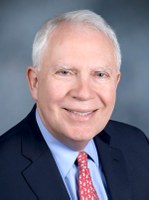
Message from the Chair
This is the most exciting time in history to be in psychiatry, with amazing advances in our understanding of the brain's structure and function, and tremendous innovation in treatment. Our department's programs capture this excitement, combining information from the latest scientific advances with the best of our humanistic traditions. We continue to grow, with ongoing expansion of our education, clinical, and research programs. We are especially excited about our new special focus tracks in our residency program.
Education has long been the central priority for our faculty, and the success of our undergraduate program, recruiting twice the national average of students into careers in psychiatry for over two decades, and the residency and fellowships recruiting a full cadre of outstanding young colleagues year after year, proves it. Our residents are repeatedly recognized nationally by receiving competitively awarded travel fellowships and program awards.
As you look through these pages, our program's diversity and breadth will be apparent. But, of course, the only way to experience the excitement in our department is to come for a visit. We'll be glad to give you a warm Kentucky welcome!
David A. Casey, M.D.
Professor and Chair
Dept. of Psychiatry and Behavioral Sciences
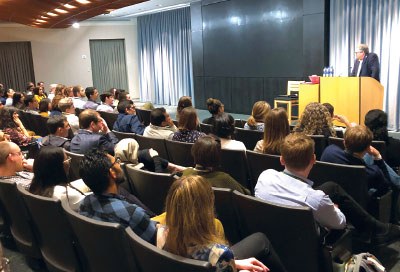
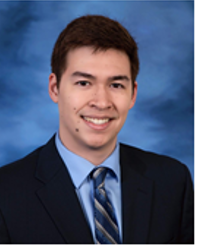
 Instagram
Instagram